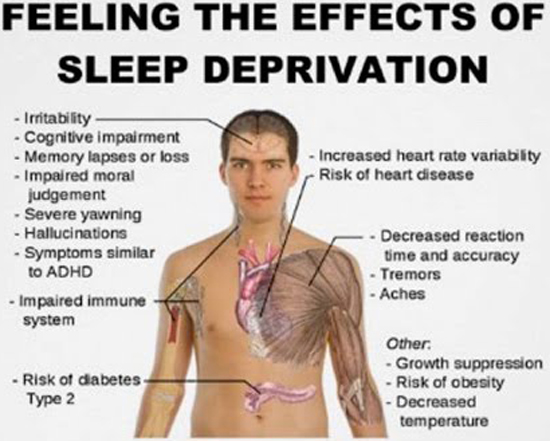Today’s Adults Are Feeling the Effects of Sleep Loss
Quality of sleep is certainly important, but never underestimate the “power of hours” when it comes to restorative rest.

Modern adults are simply not getting enough sleep and they are feeling the effects of it every day. Researchers warned about this in a couple reports a few years ago that went largely ignored, unfortunately.
The reports suggested that the lack of sleep is affecting people’s cognition, memory, choices, behavior and ability to operate machinery. We don’t know what’s more concerning – the lack of sleep among Western adults or the Orwellian suggestion to survey the sleep quotas! (A more recent report suggests that lack of sleep among adults is actually a driver for anxiety and depression.)
But how much is too little sleep? Anything less than 7 hours in a full 24-hour period.
In two large health surveys, more than one-third of respondents (35.3% and 37.1%) reported sleeping fewer than seven hours per 24-hour period or per night, according to researchers from the CDC’s National Center for Chronic Disease Prevention and Health Promotion and Office of Surveillance, Epidemiology, and Laboratory Science.
But it’s not just that adults are simply sleeping less. Sleep is like its own battery that needs nightly recharging – no one can truly function on low voltage.
According to one of two reports, published in the March 2011 issue of Morbidity and Mortality Weekly Report, a sizable proportion of those getting too little sleep had problems functioning on a daily basis, including difficulties with concentration and memory.
Another study included data from the 2009 Behavioral Risk Factor Surveillance System (BRFSS) survey, the first year that questions on sleep behaviors were included. Data came from 12 US states – California, Georgia, Hawaii, Illinois, Kansas, Louisiana, Maryland, Minnesota, Nebraska, New York, Texas, and Wyoming – and covered 74,571 adults.
More than one-third of respondents said they slept fewer than seven hours per 24-hour period on average. Older adults and non-Hispanic whites were less likely to report getting too little sleep.
Researchers from the first report said: “Continued public health surveillance of sleep quality, duration, behaviors, and disorders is needed to understand and address sleep difficulties and their impact on health.”
As a first step, a multifaceted approach that includes increased public awareness and education and training in sleep medicine for appropriate healthcare professionals is needed. However, broad societal factors, including technology use and work policies, also must be considered.
Far gone are the days of backbreaking physical labor from sun up to sun down and then clunking down on a hay pillow and sawing logs. Today’s world is indeed more complicated. Sedentary lifestyles and mental exertion are coupled with too much screen time. Those issues are then wedded to job stress (or lack-of-job stress) and even existential emptiness.
Millennials – especially those who are floating in an unstable job market or moonlighting with one or two jobs are doing what they can to catch up on zzzzz’s and maximize productive sleep, like vigorously pursuing the best mattress or filling their rooms with the misty, soothing plumes of essential oil diffusers. (Use lavender, marjoram and sweet orange, by the way!)
So, where we are now on the sleep spectrum?

Since the reports came out, a Gallup poll shows that forty percent of American adults get six hours sleep or less per night. Not an improvement.
As of 2018, children are now sadly experiencing greater sleep disturbances due to screentime and gaming. And we must not forget that a major driver for anxiety and depression could actually be a lack of sleep.
Perhaps the above researchers were right – greater public awareness could help people put their collective foot down and grab a date with Sandman tonight.
yogaesoteric
February 6, 2020
